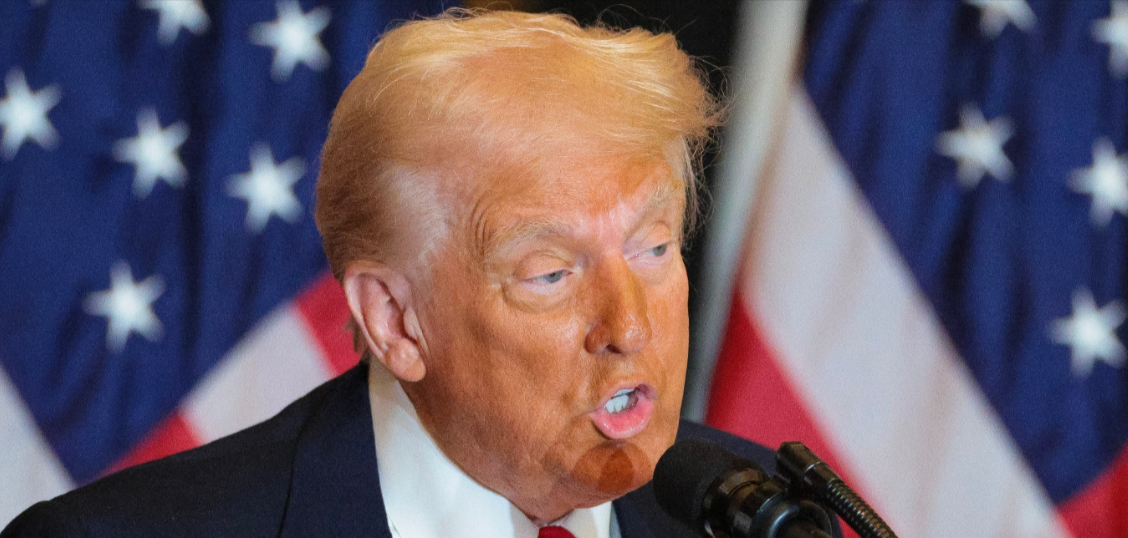Democrat’s ‘Lawfare’ Plan Against Trump May Backfire, Experts Say

With Republicans firmly in control of the White House, Senate, and House of Representatives, Democrats find themselves without federal power and have turned to extreme tactics to obstruct President Donald Trump’s policies.
The Democratic Party and its allies have increasingly relied on the courts and activist judges to stall or block policies the president aims to implement. However, some legal experts told The Daily Caller that this strategy could ultimately backfire.
“Ironically, in rushing to trip up Trump, these judges may empower him when all is said and done,” stated GianCarlo Canaparo, a senior legal fellow at The Heritage Foundation’s Edwin Meese III Center for Legal and Judicial Studies.
Speaking to The Caller, Canaparo noted that some of these judges have “gotten the law and their own power terribly wrong.”
“Not only do I expect they will ultimately be reversed on appeal, but by overreaching, they have given Trump exactly the vehicles he wants to overrule some of those old Supreme Court precedents,” he explained. “And, of course, they’ve teed up a challenge to nationwide injunctions, which the Supreme Court seems ready to abolish.”
For example, in Maryland, a judge blocked a Trump directive that aimed to withhold federal funding from hospitals performing transgender procedures on minors.
Similarly, a federal judge in Washington, D.C., stopped the president’s attempt to end foreign government grants and contracts that had been awarded before his tenure.
However, the administration scored a victory last week when another federal judge lifted the freeze on Trump’s buyout offer to federal workers.
The surge in rulings against the administration prompted White House Press Secretary Karoline Leavitt to criticize the judiciary, arguing that it was not Trump but the judges who were creating a “constitutional crisis,” contrary to Democratic claims.
“The real crisis is taking place within our judiciary, where activist judges are abusing their power to unilaterally block the President’s basic executive authority and thwart the will of the people,” Leavitt said.
Mike Davis, founder of the Article III Project, also weighed in, telling The Caller, “President Trump is acting fully within his Article II powers with these executive orders.”
He continued, “Activist judges are attempting to steal his executive power over nothing more than political differences. This is unacceptable, and these activist judges are creating a constitutional crisis. If it comes to the Supreme Court to put an end to this, then so be it.”
Harvard law professor Jeannie Suk Gersen, writing for The New Yorker, suggested that Trump likely anticipated legal challenges to his orders and strategically intended to push cases to the Supreme Court for resolution.
“This makes Trump’s legal strategy intelligible,” she wrote.
“[W]hat is playing out through a veneer of chaos is a deliberate and organized tactical program to undertake actions that provoke a raft of lawsuits, some of which could become good vehicles for establishing a constitutional vision in which the President has sole authority over the entire executive branch,” she added.
During a discussion with Democrat Illinois Sen. Dick Durbin, Acting Solicitor General Sarah Harris indicated that the Trump Department of Justice seeks to overturn a nearly century-old Supreme Court precedent that limits a president’s ability to remove agency heads without cause.
“To the extent that Humphrey’s Executor requires otherwise, the Department intends to urge the Supreme Court to overrule that decision, which prevents the President from adequately supervising principal officers in the Executive Branch who execute the laws on the President’s behalf, and which has already been severely eroded by recent Supreme Court decisions,” Harris stated.
This development followed a judge’s order to reinstate Office of Special Counsel leader Hampton Dellinger after President Trump had dismissed him.
Canaparo further explained to The Caller, “The Constitution vests the executive power in the president, and all of it must be accountable to the voters through him. That said, the president should also work with allies in Congress to get Congress to take back the legislative power that it has delegated to the executive. The president should not be our chief lawmaker, but he is our chief executive.”
He emphasized, “That’s a very important distinction that the Founders appreciated, but we have forgotten.”